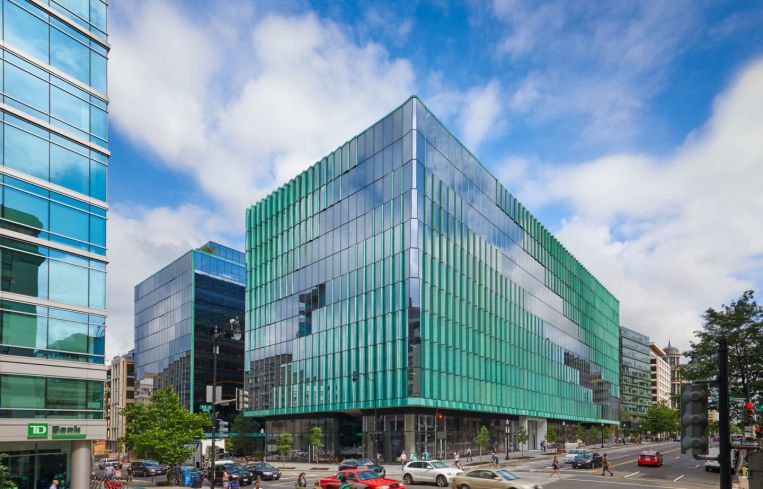CMBS Loan Behind Fannie Mae HQ Exit Faces Future Balloon Payment Risks
By Andrew Coen January 19, 2024 3:17 pm
reprints
A large Washington, D.C., office property set to lose Fannie Mae as its anchor tenant at the end of the decade is tied to $525 million of commercial mortgage-backed securities (CMBS) debt that now faces long-term risks at the back end of the loan maturity.
Fannie Mae notified Carr Properties this month of plans to exercise an early out clause at the landlord’s 14-story Midtown Center with a 15-year lease signed in 2018 to rent 713,000 square feet for its global headquarters resulting in a May 2029.
A $382 million senior CMBS loan originated in 2019 for Midtown Center was split across three deals including $261 million in DCOT 2019-MTC, $88.475 million in BANK 2019-BNK22 and $32.525 million in COMM 2019-GC44. There was also $143 million of subordinated debt in DCOT 2019-MTC for the 868,000-square-foot complex on 1100 15th Street NW completed in 2018.
The lenders on the transaction, Wells Fargo, Bank of America and Goldman Sachs, structured the fixed-rate debt with a 3.09 percent interest rate as a balloon mortgage with an anticipated payment date in 2029. The loan’s final maturity date is Sept. 30, 2033.
“We expect payments to remain current, but we do have a concern with balloon risk,” Jonathan Ramel, vice president of Morningstar Credit Analytics, told Commercial Observer. “In 2029 when there is the anticipated repayment date, the borrower is going to have to decide whether they are going to pay off the loan or refinance, which I think would be tough if the Fannie Mae space is empty.”
The CMBS deal is priced at a 39.79 percent loan-to-value ratio, according to loan documents provided by CRED iQ.
Fannie Mae’s headquarters space comprises 82 percent of Midland Center’s gross leasable area (GLA). WeWork, a struggling coworking company that filed for bankruptcy protection in November, is the building’s second-largest tenant occupying 109,943 square feet, or 13 percent of GLA, in a lease that runs through 2036.
The loan includes a requirement that Fannie Mae pay a $66.2 million termination fee if it exits in 2029, which Ramel said will help fund required rent and debt service payments.
While the current office market faces headwinds with increasing hybrid working trends, Ramel said Midland Center benefits from being a newer Class A property with a lengthy period to find a replacement tenant or tenants before 2029. He noted that if the space is filled with multiple tenants, capital upgrades would likely be required.
Ramel said that while the WeWork space is far smaller than Fannie Mae’s footprint at the building, there are risks of the space becoming empty in the near term should the company be forced to liquidate assets. Morningstar added the Midtown Center loan to its watchlist after the WeWork bankruptcy.
A Carr Properties spokesperson said thw company is “confident that Midtown Center will again attract a notable flagship customer” after Fannie Mae’s exit.
Andrew Coen can be reached at acoen@commercialobserver.com



